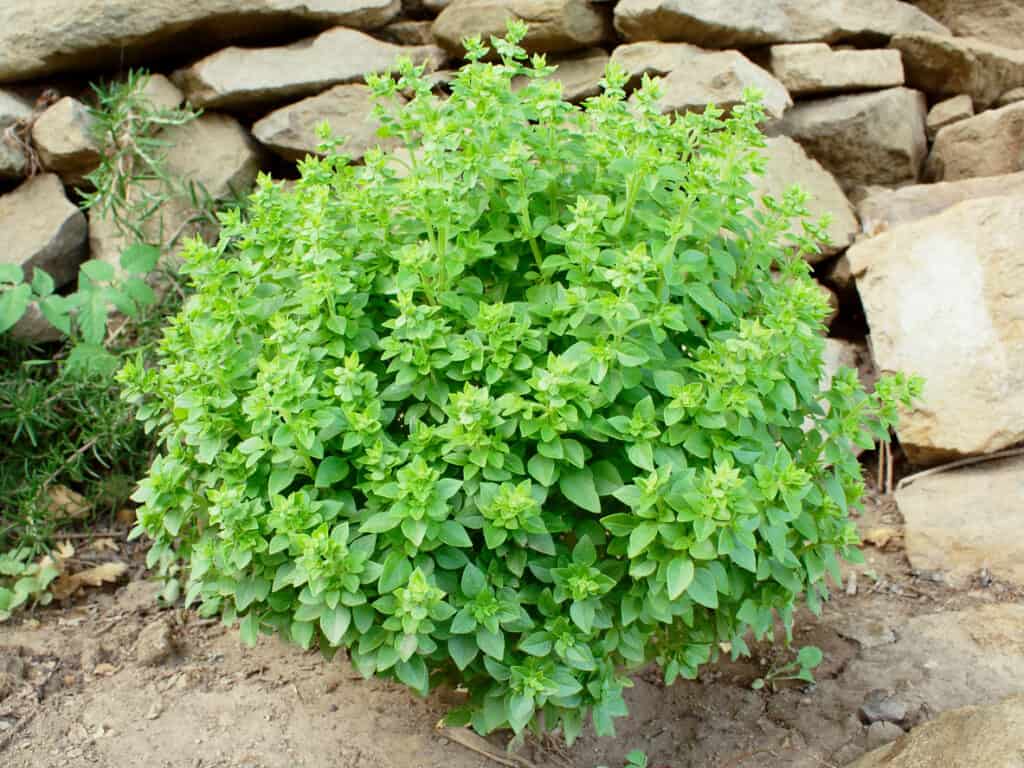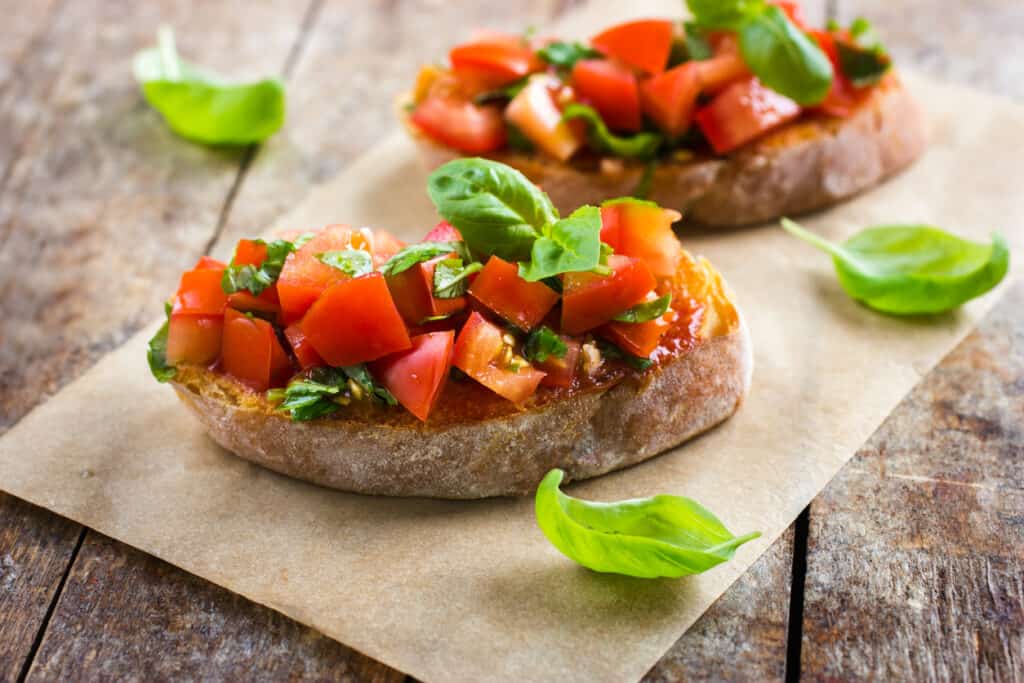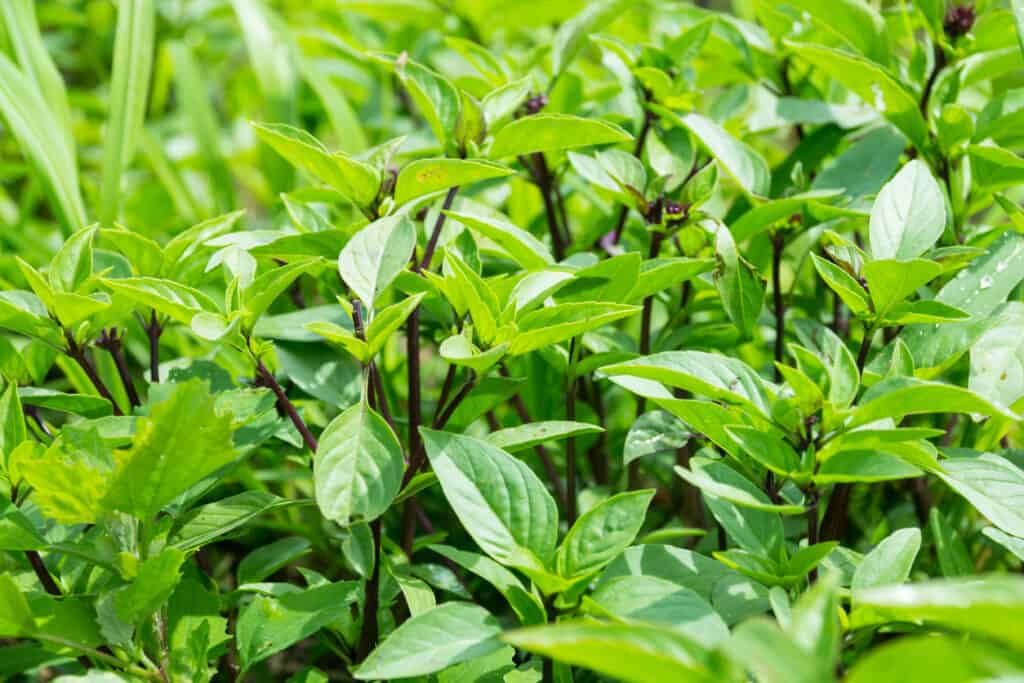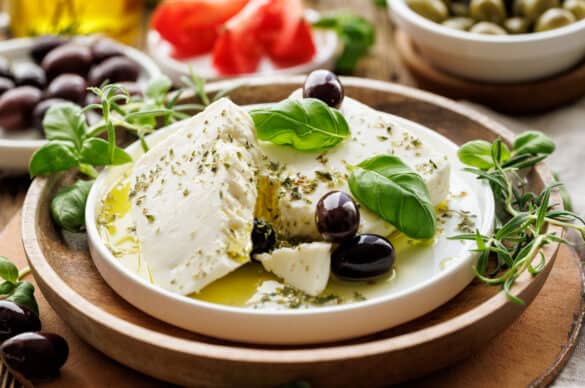Basil is a versatile and tasty herb which anyone can grow at home. If you put it near your front door everyone will be greeted with a fresh waft of Basil which is said to be uplifting, calming and energizing. That is some pretty nice Feng Shui!
Types of Basil to Grow
There are so many types of Basil to grow, but the most common Mediterranean varieties include Genovese, Sweet Basil and Greek Basil.
My dear Greek mother-in-law Tassia always had several pots of Greek Basil around her front door and along the steps in pots. We would wave our hands through the leaves and inhale the lovely smell left on our hands.
Greek Basil is slightly sweeter, with lighter green, smaller leaves than Genovese or Sweet Basil. It is used extensively in Mediterranean recipes and is a member of the Lamiaceae or mint family.

Genovese and it’s close relative Sweet Basil are the ones most commonly found in the supermarket. They are favored in Italian cooking: basil pesto, added to sauces and scattered leaves on bruschetta or in salads. Their flavor has a hint of cloves to it, less minty that Greek Basil.

I was amazed to discover that there are so many varieties of Basil. To name a few:
- Lemon basil
- Thai basil
- African blue
- Cinnamon
- Red Rubin
- Hoary basil
- Dark opal
- Christmas basil
- French basil
- Cardinal basil
- Ararat basil
- Lettuce leaf basil
And there are more!!

When to plant basil seeds:
Basil seeds like the soil to have warmed up to over 15 degrees Celsius before planting. If you want to give them a kick start you can get them going indoors in a nice sunny spot before moving them outside.
After planting, they will be giving you leaves to use in 2 to 3 months. This bountiful harvest will continue prolifically for about 5 to 6 months.
You can bring your plant back inside by the window, to prolong this time even further when the cold weather has returned.

Basil likes:
- Premium potting mix or well-drained soil
- Full sun for most of the day
- Regular watering
- It doesn’t require fertiliser unless the soil is poor
- Pruning = harvesting
- Pinch off the flowers as they arrive to prolong harvesting time
- Protect from slugs, white flies, spider mites and caterpillars by hosing off or picking off with your fingers.
- Neem oil or spray is a natural, non-chemical but effective insect repellant.
That’s really the crux of it, there is nothing complicated about growing Basil.
Is Basil good for you?
Basil is a fantastic anti-oxidant with many vitamins and minerals. These include:
- Vitamin A
- Vitamin K
- Calcium
- Iron
- Manganese
Basil is also known to have anti-inflammatory properties, and can settle an upset stomach when taken as a tea. It will help relieve nausea and increases mental alertness when used in aromatherapy.
Basil is being studied more extensively to manage blood sugar levels, stress and prevention of certain cancers.
Other studies are being done in the use of sweet basil in reducing stroke damage and to support recovery. Preliminary research is showing promising results. See: Healthline.com re Basil: Nutrition, Health Benefits, Uses and More.
Basil it seems is something of a Super Food.

